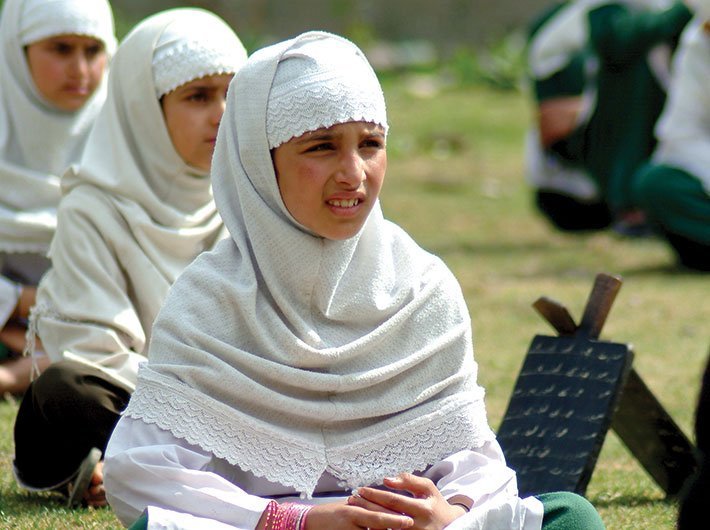Seeks reform in the manner in which Muslim personal law is understood and practiced in India today
A staggering 79 percent of Muslim women reported not having received any maintenance from their husband post their divorce, said a survey report “No More – Talaq Talaq Talaq -- Muslim Women Call for a Ban on an UnIslamic Practice” by Bharatiya Muslim Mahila Andolan (BMMA).
“Over 40 percent women were not able to retrieve their belongings, jewelry and valuables from their husband’s house, post-divorce,” the report said, adding: “33 percent of those interviewed were not in possession of their nikahnama while 66 percent said they had their nikahnaama with them.”
The report noted that “over 50 percent of women had not received their mehr. A number of those who did, reported having received it post their divorce.” Mehr is a mandatory payment, in the form of money or possessions paid or promised to pay by the groom, or by groom's father, to the bride at the time of marriage, that legally becomes her property.
The Sachar Committee had given a comprehensive report on the socio-economic and educational issues pertaining to the Muslim community. Read the summary of Sachar committee report
The BMMA said that since January 2007, “in the course of our work we have come across thousands of cases of oral talaq rendering women destitute with nowhere to go. We have been hearing numerous accounts of women being rendered homeless overnight along with their children as their husbands chose to unilaterally say talaq talaq talaq”.
“In most cases the husband’s mindset as well as action is dictated by a common sensical understanding about their “right“ to pronounce talaq and part permanently with the wife as “given by Islam”. Hardly is there any awareness about the actual Quranic injunctions or the meaning of triple talaq. Partly, the maulvis and qazis should accept their share in the prevalence of this malpractice as should those who have insisted on being sole arbiters of our religion in the country.”
Also read: Justifying personal law discrimination
The BMMA report went on to say that “those who have been claiming to be speaking on behalf of all Indian Muslims have a lot to answer! All of them must accept that together they have failed to build an awareness about the Quranic tenets on divorce that call for a 90 day time period of discussion, dialogue, arbitration and considered action”.
“The problem has reached these proportions largely owing to wilful and deliberate misinterpretations being spread by some gatekeepers of religion in our country. Blame must also be put on ignorance about Quranic tenets of justice and fairness in our society. We must also blame the popular misconceptions about male superiority in the minds of ordinary Muslims thanks to the misinterpretations carried out by the vocal forces in our society! A lot of patriarchal thinking emanating from misogynic mindsets has been passed off as Islamic and thereby the malpractice of triple talaq as a widely accepted method of divorce.”
The report notes that what has been making the situation for Muslim women worst are the various fatwa’s by religious seminaries upholding arbitrary divorces as valid and thereby adding on to the miseries.
“We urgently need reforms in the manner in which Muslim personal law is understood and practiced in India today. We need to bring about laws based on the principles of justice and fairness enshrined in the Quran. Muslim countries such as Morocco, Tunisia, Turkey, Egypt, Jordan and closer home personal laws dealing with marriage, divorce, guardianship and property. India may be an exception to the rule with a consistent ambiguity and obfuscation that guides these important components in a married couple’s life.”
The report observed that the founders of the Constitution had gender justice uppermost in their minds. “They also respected the religious diversities that comprise India. They were also mindful about India being a secular country where the government has to be equi-distant from all religions and maintain its secular character. Uniform Civil Code was conceived in the backdrop of rituals and practices in our society leading to denial of gender justice and equality.”
Read the complete report by Bharatiya Muslim Mahila Andolan
